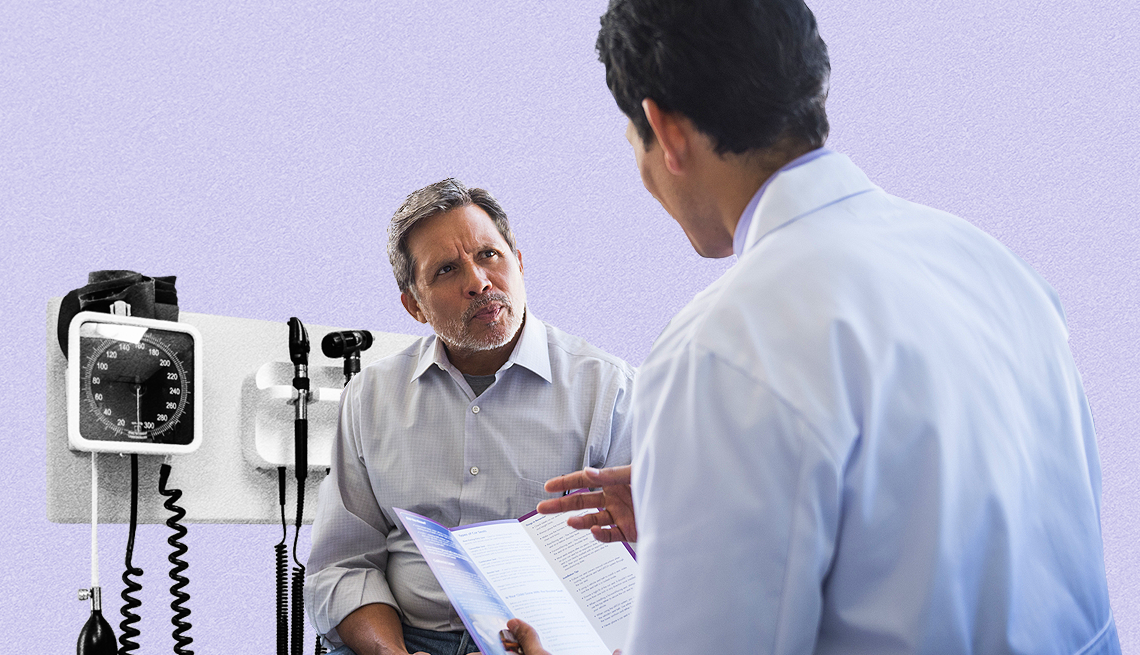Play all audios:
AARP (Source: Getty Images) Facebook Twitter LinkedIn
Older adults are more likely than younger people to have high blood pressure and suffer from serious health conditions that can be caused or worsened by hypertension, such as heart disease
and stroke. But research suggests that high blood pressure in older patients often isn’t being treated as aggressively as it should be.
A Harvard study found that more than 70 percent of older Americans who need more intensive treatment for high blood pressure aren’t receiving it, and some health experts say they think age
bias could play a role in those decisions. The assumption by doctors that high blood pressure is inevitable after a certain age, and concerns about side effects of lower blood pressures on
older people, could be factors in this undertreatment.
“There’s a bias towards older people because doctors are concerned that they won’t do well on these lower blood pressures,” says Beverly Green, M.D., senior investigator for Kaiser
Permanente Washington Health Research Institute. Doctors may have concerns about older patients becoming lightheaded, which could increase fall risk, and the effect on cognitive abilities,
especially for someone already experiencing cognitive decline. But many of these concerns have been challenged by research, Green says, and it’s older people who actually benefit the most
from the lower blood pressures.
Older people may not receive enough blood pressure medicationHypertension becomes more common with age: The Centers for Disease Control and Prevention (CDC) says 74.5 percent of those over age 60 have high blood pressure, which is defined as a reading
of 130/80 mm Hg. Yet a study published in Hypertension found that physicians were treating high blood pressure less aggressively in recent years, with fewer medications being prescribed
overall. Lead author Brent Egan, M.D., vice president of the American Medical Association’s cardiovascular disease prevention group, says a fall in blood pressure diagnosis and treatment
from 2015 to 2018 was primarily explained by a decline in the effectiveness of hypertension management plans.
“Fewer patients were being diagnosed with hypertension, fewer were being treated, and those being treated were more likely to report taking a single blood pressure medication when most
patients require two or more blood pressure medications to control their hypertension,” Egan says.

